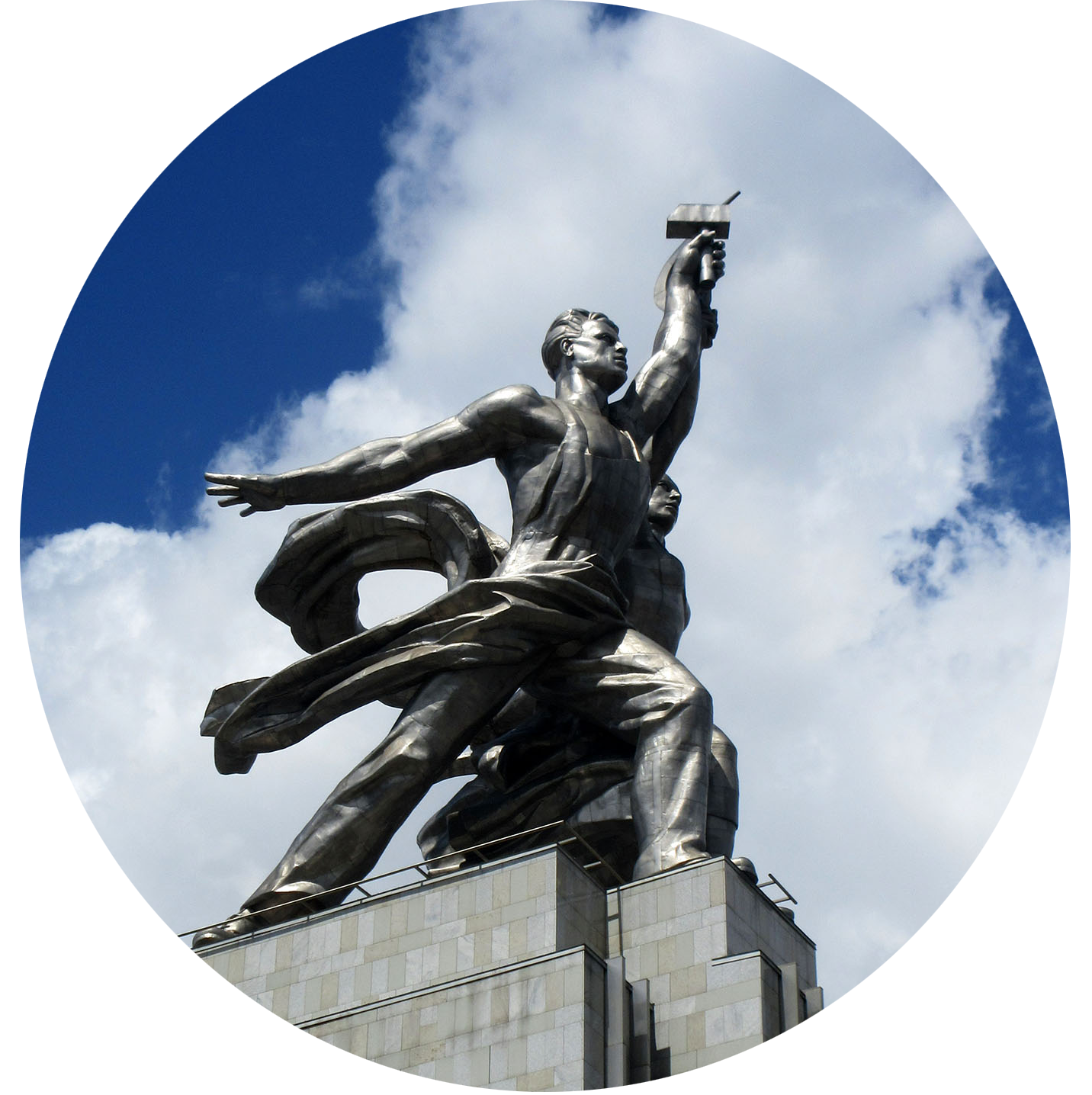Blok: On Kulikovo Field
Васнецов, После побоища Игоря Святославича с половцами (After Igor Svyatoslavich’s Battle with the Polovtsians).
One of the most important events in Russian history was the “Mongol-Tatar invasion” (Монголо-татарское нашествие) and subsequent period of Russian subjugation to the Horde; lasting from roughly 1240 to 1480, this period is referred to in Russian as the “Mongol-Tatar Yoke” (Монголо-татарское иго). In 1380 Dmitry Donskoi won a battle at Kulikovo Field over the Golden Horde — a sign that the tables were turning. Blok’s 1908 poem revisits this decisive battle in an apocalyptic tone; he and many in his generation felt that Russia again stood at a fateful turning point in history.
On Kulikovo Field
The river spreads wide. It flows, and indolently sorrows,
And washes the banks.
Above the barren clay of the yellow precipice,
The haystacks sorrow in the steppe.
O, my Rus! My wife! To the point of being painful,
Our long path is clear.
Our path — like the arrow of an ancient Tatar will —
Has pierced our chest.
Our path is of the steppe, our path — in boundless longing —
In your longing, O Rus!
And even the mist — nocturnal and foreign —
Does not frighten me.
Nevermind that it’s night. We will race to our goal. With bonfires we’ll illuminate
The remote expanses of the steppe.
In the smoke of the steppe the holy banner will flash,
And the steel of the khan’s saber…
And eternal struggle! We only dream of peace,
Through the blood and dust….
The steppe-mare races, races,
And tramples the wild grass….
And without end! The miles, the slopes flash by…
Make them stop!
The frightened clouds fly by, fly by,
The sun now sets in blood!
The sun now sets in blood! Blood pours from the heart!
Weep, heart, weep…
There is no peace! The steppe-mare
Races at a gallop!
June 7, 1908
На поле Куликовом
Река раскинулась. Течёт, грустит лениво
И моет берега.
Над скудной глиной жёлтого обрыва
В степи грустят стога.
О, Русь моя! Жена моя! До боли
Нам ясен долгий путь!
Наш путь - стрелой татарской древней воли
Пронзил нам грудь.
Наш путь - степной, наш путь - в тоске безбрежной -
В твоей тоске, о, Русь!
И даже мглы - ночной и зарубежной -
Я не боюсь.
Пусть ночь. Домчимся. Озарим кострами
Степную даль.
В степном дыму блеснёт святое знамя
И ханской сабли сталь...
И вечный бой! Покой нам только снится
Сквозь кровь и пыль...
Летит, летит степная кобылица
И мнёт ковыль...
И нет конца! Мелькают вёрсты, кручи...
Останови!
Идут, идут испуганные тучи,
Закат в крови!
Закат в крови! Из сердца кровь струится!
Плачь, сердце, плачь...
Покоя нет! Степная кобылица
Несётся вскачь!
7 июня 1908
Vocab notes
раскидываться АЙ / раскинуться НУ: to spread • течь К: to flow • грустить И: to mourn • ленивый: lazy, indolent • мыть ОЙ: to wash, lap at • скудный: scanty, meagre • глина: clay • обрыв: ravine • степь, и: steppe • стог, pl. стогa: haystack • до боли: to the point of being painful (боль, и: pain) • ясный: clear, bright • путь, и: path • стрела: arrow • татарский: Tatar • древний: ancient • воля: will • пронзать АЙ / пронзить И: to pierce • степной: from степь • безбрежный: boundless (shore-less) • мгла: mist • зарубежный: foreign • бояться ЖА: to fear • домчаться ЖА: to race (and arrive at one’s destination) • озарять АЙ / озарить И: to illuminate • костёр: bonfire • даль, и: distance • дым: smoke • блеснуть НУ: to flash • святой: holy • знамя, знамени: banner • ханский: from хан: khan • сабля: sabre • сталь, и: steel • вечный: eternal • бой: battle • сниться И: to appear in a dream • пыль, и: dust • кобылица: filly (horse) • мять /Н: to crumple • ковыль, я: wild grass • мелькать АЙ: to flash, glimmer (in passing) • верста: a verst (1.067 km) • круча: steep area • пугать АЙ / испугать АЙ: to frighten • туча: cloud • закат: sunset • струиться И: to stream • плакать А: to weep • нестись С: to race, fly • вскачь: at a gallop

